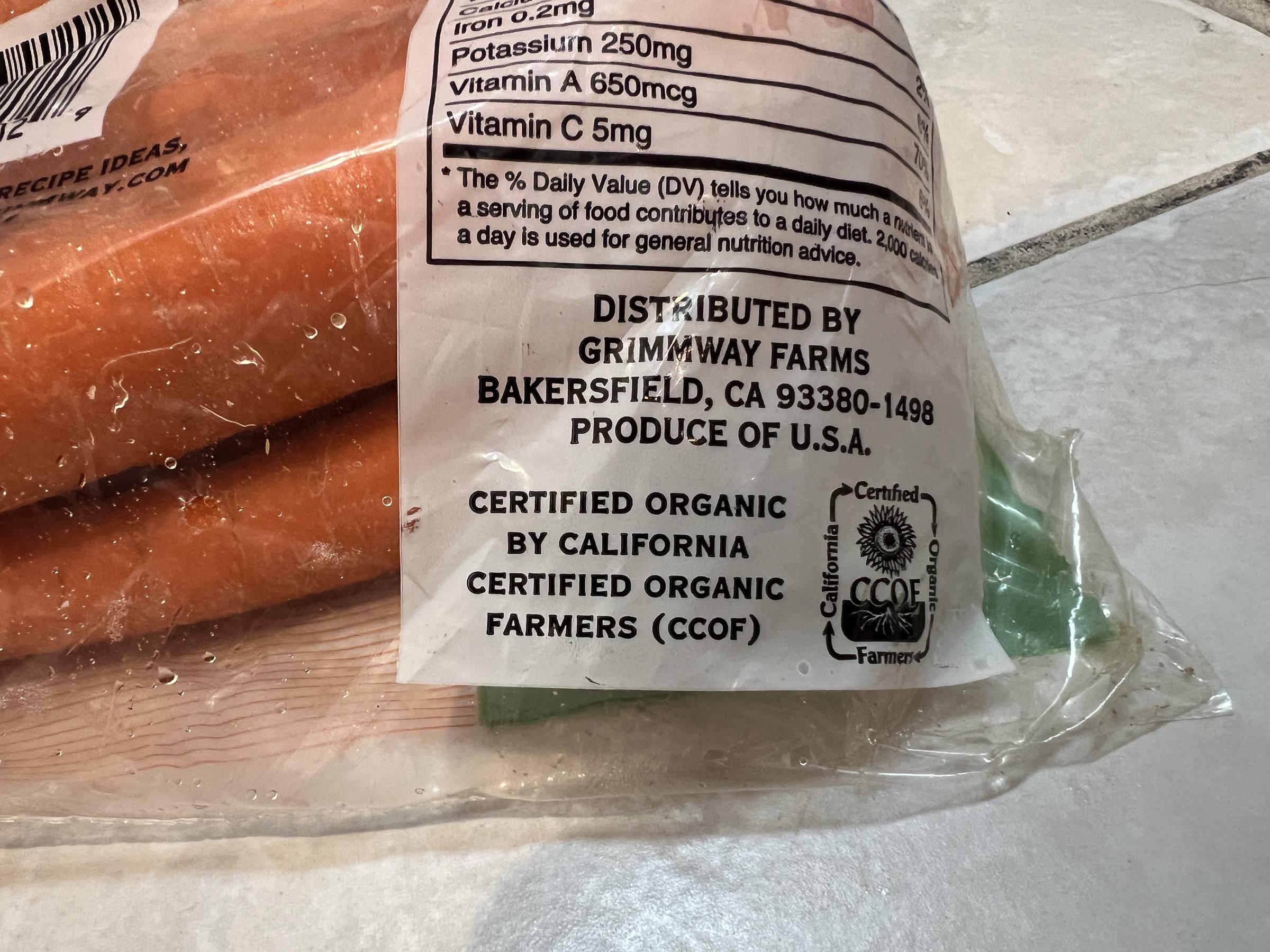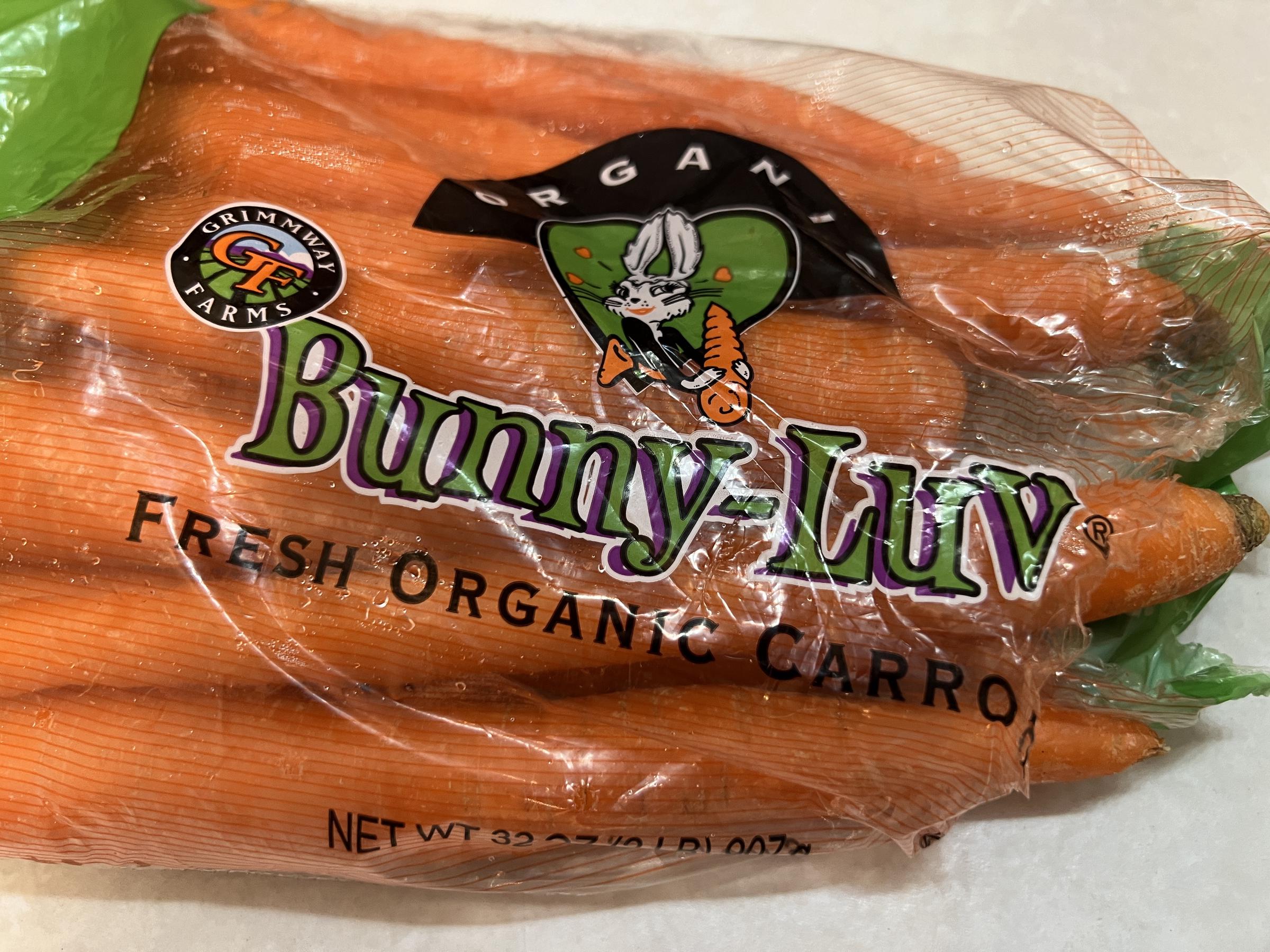
E. Coli Outbreak Affecting 18 States Linked to Organic Carrots — Details
On November 17, the Centers for Disease Control and Prevention (CDC) and the Food and Drug Administration (FDA) alerted the public that there is a new E. coli outbreak in the U.S. that is linked to organic carrots. They have revealed which products have been recalled, the affected states, case statistics, symptoms, and what people should do to avoid infection.
Although the supplier company issued a recall of the implicated products on November 16, the CDC warns that some of the recalled bagged carrots may still be present in consumers’ homes, even if they are no longer available on the shelves of local supermarkets.

A close-up photo of a Grimmway Farms information label in Lafayette, California on November 17, 2024 | Source: Getty Images
People are advised to check their refrigerators for any brands of organic whole or baby carrots that have been recalled, and immediately discard or return them to the store.
Businesses are also cautioned against selling such items and have been urged to wash and sanitize any surfaces or objects that may have come into contact with the recalled carrots.

An individual holding a bunch of baby carrots from their fridge in Lafayette, California. | Source: Getty Images

A close-up photo of a packet of Bunny Luv organic carrots from Grimmway Farms in Lafayette, California. | Source: Getty Images
Others include Nature’s Promise, O-Organic, President’s Choice, Raley’s, Simple Truth, Sprouts, Trader Joe’s, Wegmans, and Wholesome Pantry. The recalled baby organic carrots feature best-if-used-by dates ranging from September 11 to November 12.
The E. coli outbreak has been confirmed in 18 states across the U.S., with a total of 39 reported illnesses, 15 hospitalizations, and one death. Additionally, the last reported illness onset occurred on October 28.
Affected states include Arkansas, California, Colorado, Massachusetts, Michigan, Minnesota, Missouri, North Carolina, New Jersey, New York, Ohio, Oregon, Pennsylvania, South Carolina, Texas, Virginia, Washington, and Wyoming.
The recalled organic carrots were contaminated with Shiga toxin-producing Escherichia coli (E. coli) O121:H19, which is a dangerous strain of bacteria known to cause severe and sometimes life-threatening infections.
This strain poses a heightened risk to young children, the elderly, and individuals with compromised immune systems.
Usually, most people recover after five to seven days without needing treatment. However, some people require hospitalization if they develop serious kidney problems. The CDC urges anyone experiencing severe symptoms like signs of dehydration, continuous diarrhea, and a fever higher than 102°F to seek medical care.
While most strains of E. coli are harmless and play a vital role in a healthy intestinal system, helping to digest food, produce vitamins, and combat harmful germs, certain strains can cause severe illness.
Vulnerable populations, including adults aged 65 and older and international travelers, are at higher risk of infection.
Frequent handwashing remains one of the most effective ways to reduce the spread of harmful bacteria. Civilians should wash their hands for at least 20 seconds with soap and water before, during, and after food preparation, and always after handling raw ingredients like meat, poultry, or eggs.
Keeping raw meat, poultry, seafood, and eggs separate from other foods is also crucial. People should use different cutting boards for raw and ready-to-eat items, and store raw foods in sealed containers to prevent juices from leaking. Notably, the CDC advises against washing raw chicken as it can spread bacteria to kitchen surfaces.
The CDC recommends specific temperatures such as 145°F for whole cuts of meat, 160°F for ground meats, and 165°F for poultry and leftovers.
Other prevention measures involve ensuring access to safe drinking water. When camping, hiking, or traveling, people should ensure water is treated to avoid contamination.
Similarly, one should avoid swallowing water while swimming in lakes, ponds, or pools, and never swim if experiencing diarrhea.
By following these steps, individuals can greatly reduce their risk of E. coli infection and other foodborne illnesses, ensuring the protection of themselves and their loved ones.


